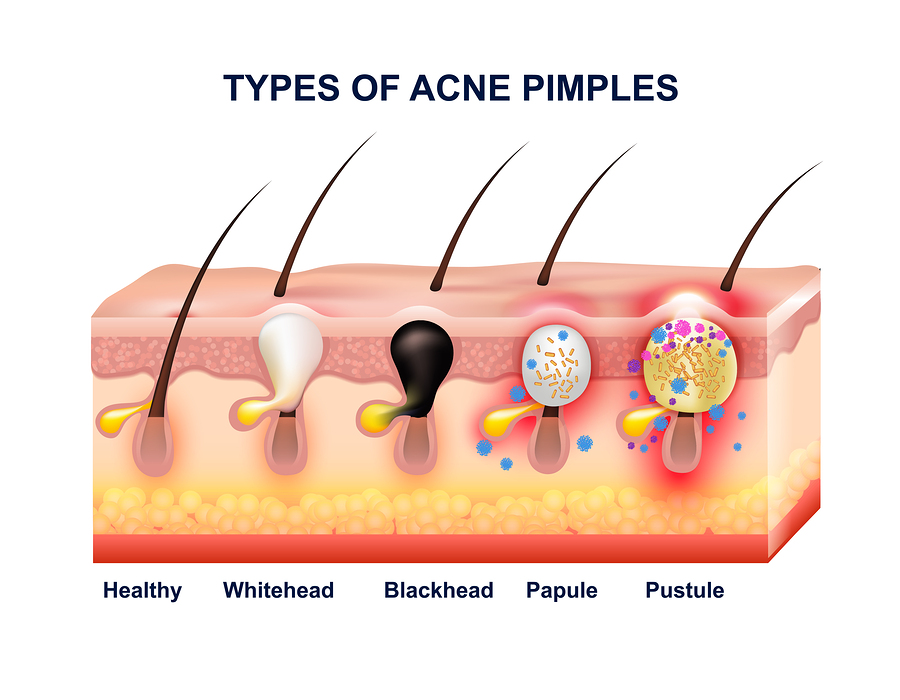Acne Clinic
Dr. Amy Kaplan has a special interest in acne and the physical and emotional impact it has on adolescents. After contemplating how to better serve patients with this chronic skin condition she has done outside acne training with dermatologists in our community. She is able to initiate acne treatment in our office, and follow routinely unless the need for more specialized evaluation or the need/desire for Accutane arises.
What is Acne? 
The appearance of whiteheads, blackheads or pimples that appear on the body (usually the face, chest, and upper back) from hair follicles that get clogged with oil and dead skin cells.
Acne is THE most common skin condition in children and adolescents, affecting at least 80 percent of those in these age groups. Acne has a profound impact on a teen’s self-image, self-esteem, and feelings of social acceptance. Teens with significant acne tend to have increased rates of mental health illness, including anxiety and depression.
If your child is suffering from acne contact us to schedule their first appointment with Dr. Kaplan who will be offering special after-school evening appointments for her Acne Clinic.

Perks:
- After-school/Evening availability
- The comfort of being treated by one of your child’s primary care physicians
- No specialist copays if you’re seen right here at Potomac Pediatrics!



